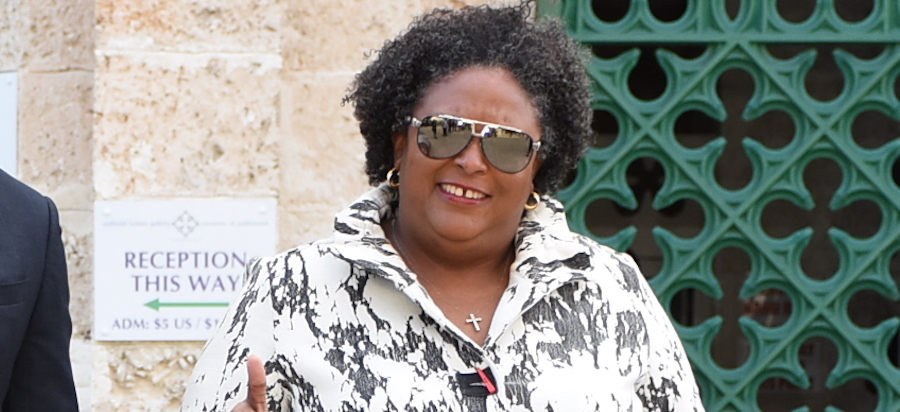The bread-and-butter tourism industry was told tonight it must share the nation’s burden of economic recovery, has been slapped with increases in their room rate levies, just five months after new taxes were introduced.
But Prime Minister and Minister of Finance Mia Mottley has announced that since tourism industry had made a “strong case”, it would be spared the feared 15 per cent rate of Value Added Tax (VAT) on tourism come January 2020.
Instead, she said, the 7.5 per cent rate of VAT would be increased to 10 per cent come next year.
This measure should raise some $27 million in a full calendar year and just $4.5 million in this fiscal year, the Finance Minister said.
Mottley said the decision to increase the VAT rate from 7.5 per cent to 10 per cent was taken after it was recognised that the doubling of the rate would have adversely affected the competitiveness of the sector and its “packages in the international market”.
But in an effort to add some $15 million to Government’s revenue over the course of a year and make up any shortfall, Mottley said there would be an increase in the room rate levy by 75 per cent on the various types of accommodations, effective April 1.
This $15 million is in addition to the $47 million that was expected to be raked in from the October 1, 2018 rates.
Mottley told lawmakers: “the introduction of this levy was met with some skepticism by those in the industry. In fact, I think some of them curse very badly. They have now come back and realized this levy is effective and rather than abandoning the levy, the sector has agreed that we should seek to increase the fees on this levy.”
As such, the rate for an apartment, guesthouse, and hotel ‘B’ class would go from
$5 to $8.75 per bedroom per night, effective April 1.
Hotel ‘A’ class rooms will increase from $11 to $19.25 per night, while hotel luxury class will jump from $20 to $35 per bedroom per night.
In addition, the rate charged per bedroom per night on vacation rental properties and villas will increase from 2.5 per cent to 3.75 per cent, but where that amount exceeds $35 per night, the rate to be charged will be capped at $35 per bedroom per night.
From April 1, Villas would move from
being zero rated to exempt status under the VAT Act.
Mottley said: “This is intended to make sure that the sector carries its full share of taxation in this country by not receiving ongoing refunds from the Barbados Revenue Authority (BRA).
“Similarly, that shift in exempt status should save the Government at least $5 million in refunds that it is currently paying back to the villa sector.”
Mottley announced that in an effort to “arrest this base-erosion” of the VAT collected by Government, the status of the other items in Schedule 1 of the VAT Act would be changed from being zero-rated to exempt under Schedule 2, effective April 1.
But she stressed that Government was not prepared to change the law to introduce VAT on education services, medical services, transport, financial services, fisheries, agriculture supplies, export of goods along with basic food items.
But Mottley said: “There are however, some items we will have to be able to review within the food system.
She explained that suppliers should not be getting VAT refunds for some items and they should not be passing on costs to consumers.
She said Government is to set up a working group within the Social Partnership to review those matters and would be required to report back within two months “so that there will be absolute clarity as to what should be the incidents of VAT on certain goods that are zero rated and exempt rather than the confusion that takes place now among suppliers”.
In addition to the additional revenue and savings, the move in other items not specifically addressed from zero rated to exempt will yield the Government net revenue of approximately $7 million over the course of a full year, said Mottley.




